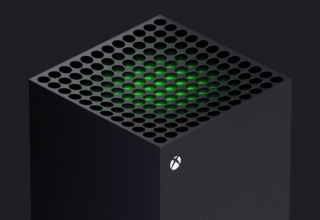I don’t consider myself to be an especially smart individual. I get by with what I have, you know? I know I’m not about to conduct seminars on mathematic principles any time soon but I’d like think I could hold a conversation on a range of interesting topics (maths not withstanding).
Yet whenever I try to talk about Trials of Fire, I’m left stammering and stuttering like a five-year-old trying to communicate the severity of the episode of Paw Patrol he just watched. A game with a generic and basic title has ended up being one of the most complex games that I’ve played in a while, and for the most part, it’s an excellent experience.
Trials of Fire picks up the rogue-like deck-building concept and runs with it faster than anyone imagined. In the process, it creates a deep, unique, and rewarding experience that is often bogged down by convoluted menus and overwrought mechanics that sometimes feel like they’re fighting one another rather than working together in tandem.
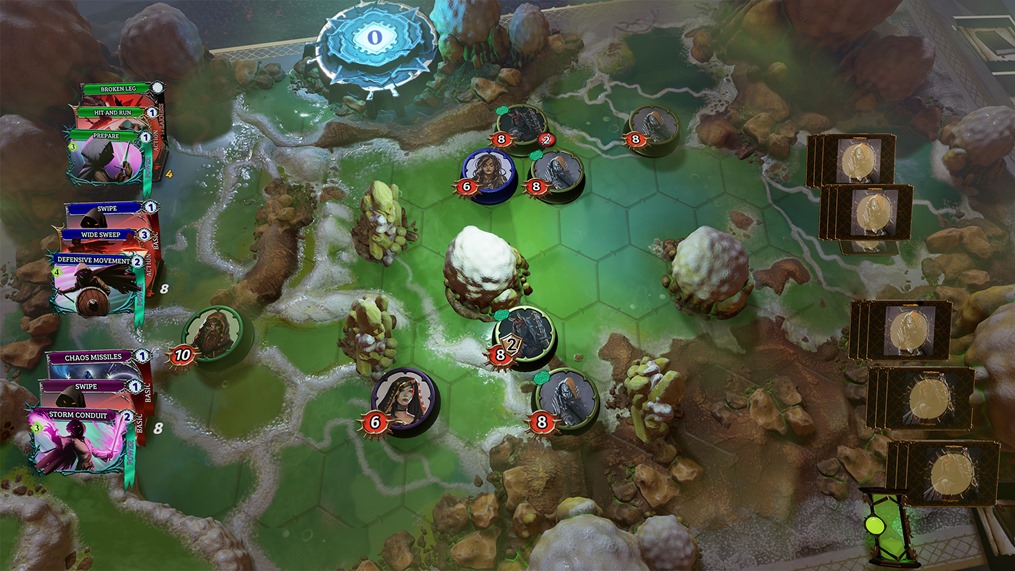
Let’s get this out of the way first: Trials of Fire is one of the most hodge-podge assortment of genres I’ve ever experienced in a game. From the outset, it’s pulling from class role-playing games, navigating the world feels like a randomly generated DnD environment, combat is a mixture of turn-based combat and deck-building and there are even light survival elements at play. Oh, and don’t forget the tiered loot system from an action RPG. It’s all wrapped up in a rogue-like bundle because of course it. While it’s all somewhat difficult to parse when you first boot up the game, despite the best efforts of the tutorial, you’ll find yourself settling into a groove rather quickly.
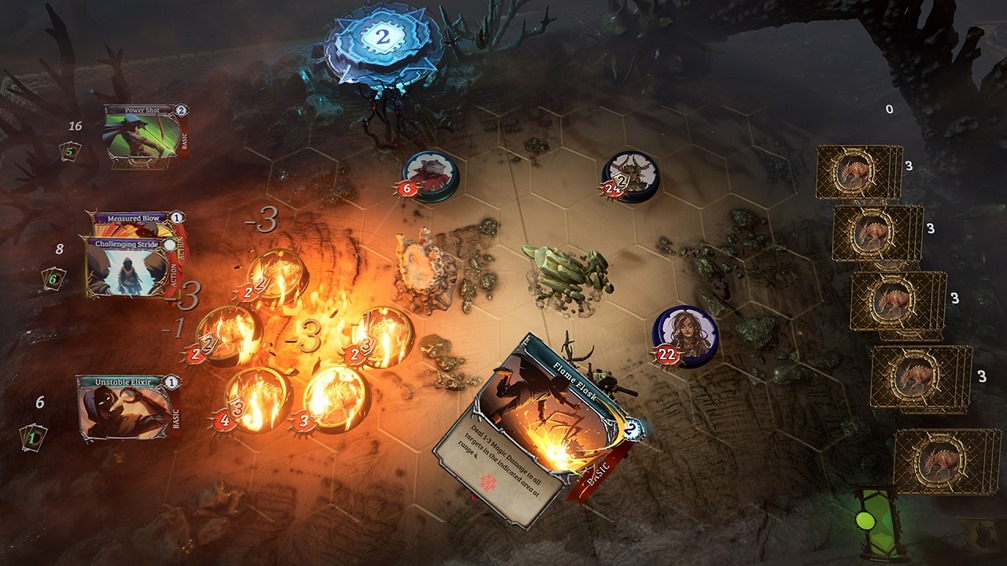
To break it down, you’ll be taking a part of heroes, all three of whom are a different class (which affects what cards they carry; effectively their move set and abilities) on a series of quests around the over-world, represented as a map scattered across a hexagonal grid. Depending on the adventure you select, which are separated by difficulty and how long they’ll take to complete, you’ll either be aimlessly looking for adventure and surviving as long as possible or following a set storyline.
When you encounter enemies, the hexagonal grid will zoom into a randomly generated battlefield and the battle will commence as a turn-based fight. You’ll need to either burn your cards to generate “mana” (or energy, whichever you prefer) or use the mana you’ve curated to play cards that allow your team to move around the field, attack, or activate a special ability.
Once the battle is completed, you can loot your enemies which will give you items that add cards to your deck. Then you’ll be on your way. Oh, you’ll also need to camp periodically because your party will grow tired; it also gives you chance to spend time crafting materials to upgrade certain items (and thus cards), meditate to remove detrimental cards, or just rest to remove fatigue cards.
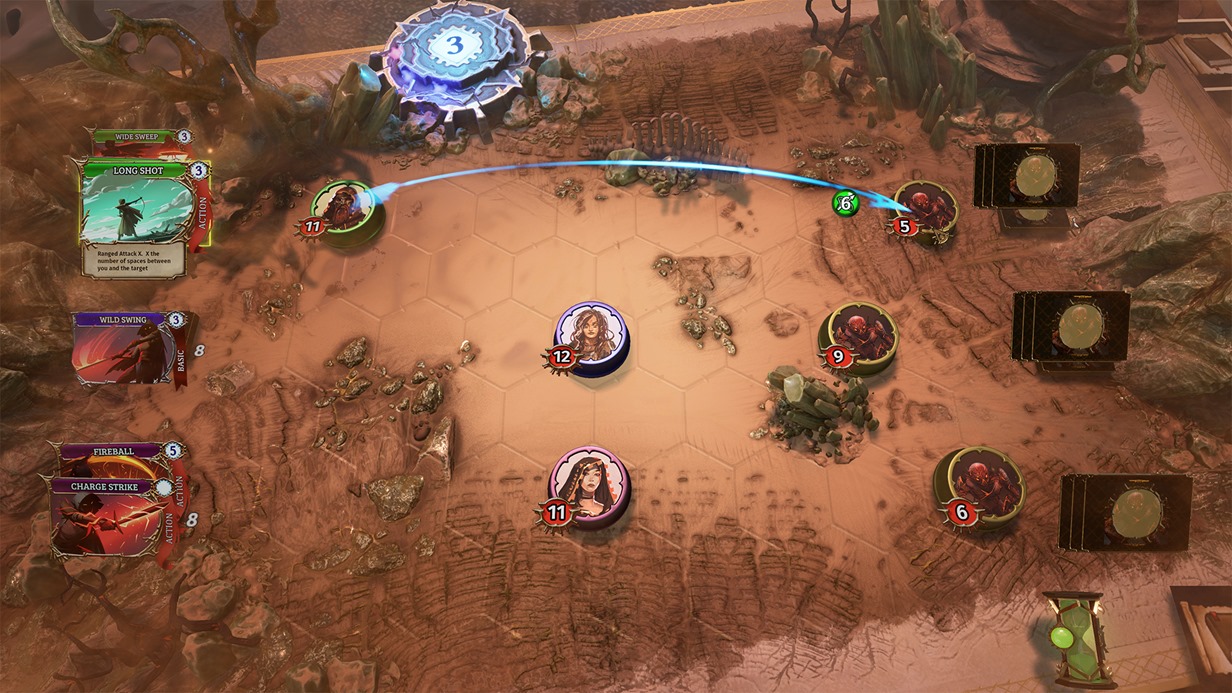
I know I’ve just spent a lot of time simply explaining the game but I’m trying to make the point that Trials of Fire is a content-dense experience. So much so that it feels unapproachable when you first delve into it. It’ll take a while before you understand how all the systems interact but when everything does click… well, you’ll likely feel like the smartest human to ever walk the face of the planet.
Trials of Fire is a game that knows it’ll take you a long time to master but encourages you to persevere. It’s generous with its rewards, seemingly always dishing out new heroes and cards for you to tinker with and build your ultimate starting party. There’s a great variety of roles on offer here that all flow into one another in the heat of combat.
Let’s talk about that combat for a second because while it’s also highly engaging I’d be lying if I said it wasn’t tedious at times. Dumped out onto the battlefield, you’ll basically be playing what looks like a very complicated game of checkers; one that involves cards and cover. It’s an overall satisfying experience based on presentation: The environments feel dynamically crafted to block different paths and sight-lines every time and enemy pieces explode in the most glorious manner when defeated.
Yet it can also feel very slow at times. Forcing players to burn non-movement cards in order to move and often limits what you can do in a turn, resulting in some instances of characters just sitting around waiting to jump to another location while the enemy mobs them. I think a base movement on every character that can be boosted by burning a card would have made for a combat system that kept pace with the action, rather than grinding it to a halt. Too often was I actively avoiding combat not because I was scared I would die but because I didn’t feel like wasting my time.
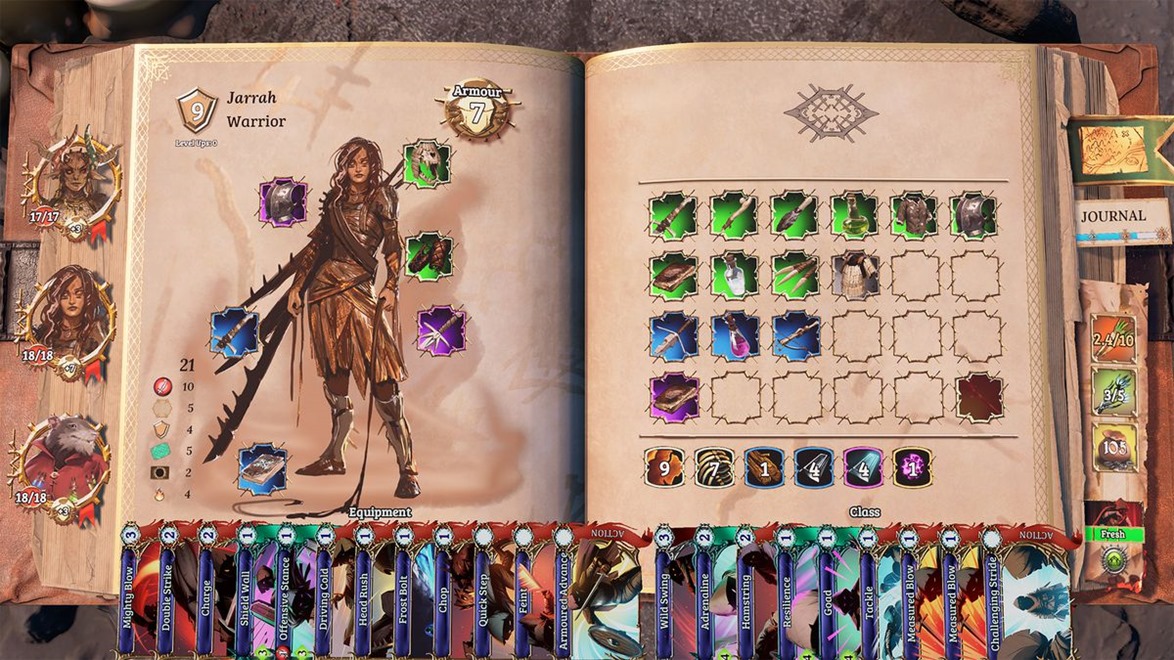
The same thing could be said about the writing in the game which is… well, you’re not playing it for the story. Certain stories have specific quests for you to follow and complete and these range from generic to very generic. The world of Trials of Fire, Ashe, is an interesting one though, a fantasy world ravaged by an apocalypse fragmenting its inhabitants into struggling tribes and towns. Yet I couldn’t really be bothered to care about any of it, honestly. All I wanted to do was charge off to the next quest marker to hunt down the next bundle of cards to slot into my collection.
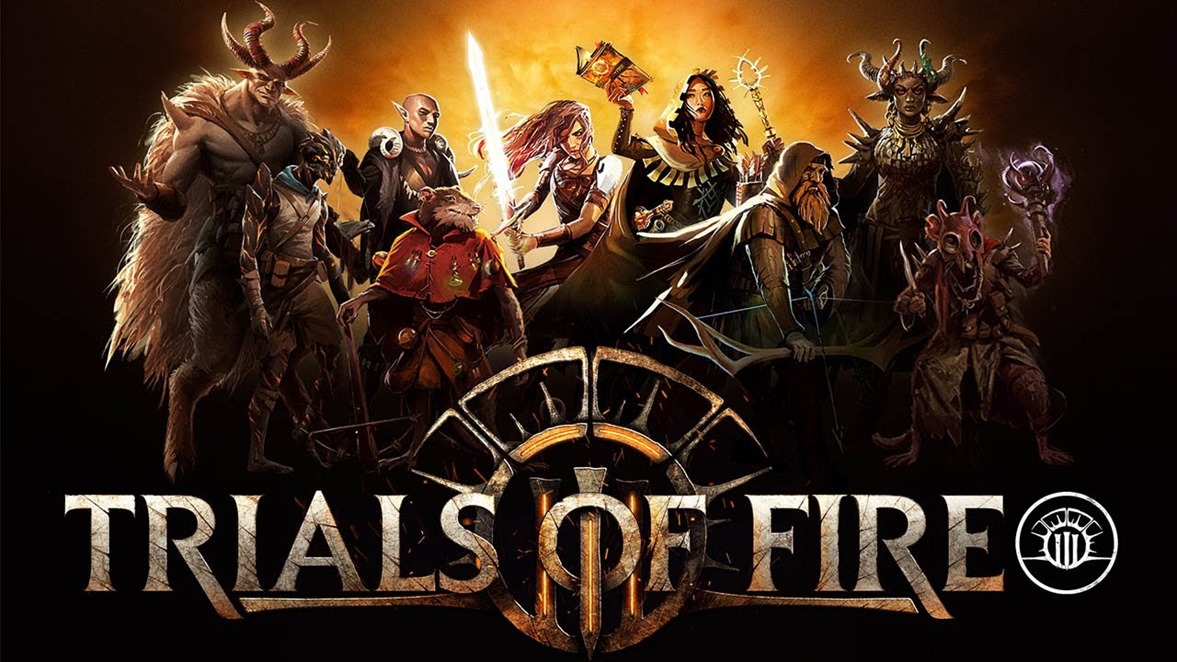
I understand how this review might sound but I want to emphasise that I think it’s wonderful that Trials of Fire exists because it is an exceptionally well-made game. While the combat can be a touch too slow at times, the writing inconsequential, and the learning curve very steep, it’s a marvel of fused genres. It’s wild that developer Whatboy Games was able to mesh everything together so well in a way that works. Sure, it can be a touch convoluted I’ll admit. But that’s the process of acclimation, right?
There’s so much content for fans of deck-builders, rogue-likes and tactics fans to play with that it almost feels designed to zero in on the largest swathe of the market it possibly could. That sounds shameless and disillusioned, but the final product is anything but that! There’s a love and sense of extreme attention poured into this game, that by all accounts shouldn’t exist. Trials of Fire is the kind of game that may battle to find an audience. Yet when it does find the people it’s looking for, they’ll be enmeshed within it for hundreds of very happy hours.
Push past the convoluted mechanics and daunting start of Trials of Fire to be greeted by a deep and engaging deck-building rogue-like that’s meticulously designed, generous with content, and rewarding to play. – 8.0
Last Updated: April 21, 2021
| Trials of Fire | |
|
Push past the convoluted mechanics and daunting start of Trials of Fire to be greeted by a deep and engaging deck-building rogue-like that’s meticulously designed, generous with content, and rewarding to play.
|
|
|---|---|
| Trials of Fire was reviewed on PC | |
|
81 /
100
| |

